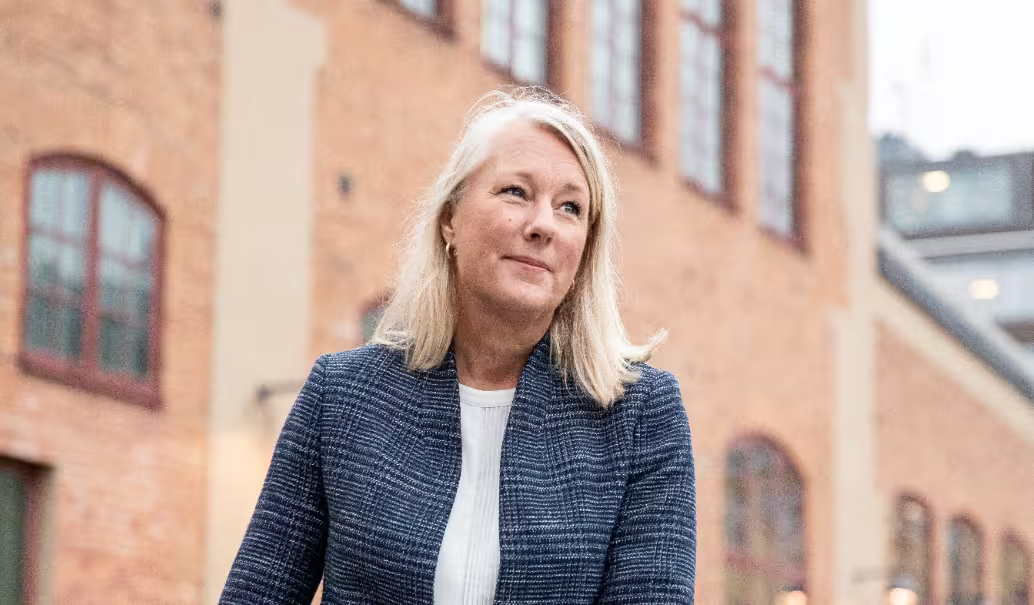”We want to lead the development of a sustainable credit market”
As Chief Compliance Officer, Lina Rollby Claesson is developing Intrum’s compliance work.

What is Intrum’s most important task as a corporate citizen?
“Daring to place the consumer foremost, working actively to help people get out of debt quickly and easily. The boundary between collection and debt counselling is becoming blurred. It is equally important for companies to actually get paid for the goods and services they sell. Effective collection processes are needed for the credit market to function and to be able to contribute to society’s expanding economy. We play an important function here in ensuring that this is achieved in an ethical and balanced way.”
How mature is the credit management segment?
“Traditionally, the segment has had a somewhat dubious reputation in some countries, although the trend is now favourable. Several new regulations have been introduced in recent years, helping strengthen the maturity of the sector, including the new NPL Directive that introduces licensing requirements, management testing and other general requirements in the area of collection. Another example is GDPR. People are now becoming aware of their rights in the field of data protection, which is good. Several countries have also begun to implement the new regulations, pertaining to the collection segment, designed to counteract
money laundering.”
It’s a matter of building trust in our operationsLina Rollby Claesson, Chief Compliance Officer at Intrum
What is your most important task as Compliance Officer?
“Ensuring that our employees understand the regulations applicable to our operations and that they are able to apply them in everyday life. To streamline these efforts, we have built up a network of local Compliance Officers, all applying the same riskbased methods, which has contributed to a more proactive dialogue internally. This also applies to our dialogues with authorities and investors, which is also important in being able to contribute to the general development of regulatory compliance.”
How do you know whether employees really understand where the ethical boundaries lie?
“Information and training are fundamental, but to get everyone on board, you have to work with these issues practically. For reasons including building commitment, when developing our new course on the Code of Conduct, we solicited examples of real ethical dilemmas from the local operations. The other side of the coin involves monitoring and review, and maintaining good procedures for reporting violations.”
What is in focus going forward?
“The launch of our new course on the Code and Conduct in early 2020 represents an important milestone. Other issues on my desk, looking ahead, are GDPR, where the systems-support and documentation requirements are becoming increasingly detailed, as well as the money laundering regulations that are increasingly mandatory. Also essential is a continued dialogue with consumers, clients and representatives at the EU level, on the mission and function of the credit management segment in society.”
Interesting facts:
- As a member of sector organisation FENCA’s Legal Affairs Committee, Lina has been involved in developing a new GDPR Code of Conduct that is to be certified by the European Data Protection Board.
- Lina is also involved in lobbying regarding the EU’s proposal for a Non-Performing Loans Directive and for an active dialogue with the EU institutions on its contents. The directive aims to strengthen the requirements imposed on the players in the credit management segment.
- In 2019, 2,368 employees participated in our anti-money laundering training. The course forms part of our work to strengthen compliance within the Group and to increase our employees’ understanding of our material sustainability issues.
Read more about our journey and the steps we have taken to further consolidate our market-leading position in Europe in our Annual and Sustainability Report for 2019.